Delta 8 THC, Delta 9 THC, News
THC and Sleep: Unlocking a Better Night’s Sleep with or without THC
Introduction to THC and Sleep
A good night’s sleep is an essential aspect of overall health and well-being.
Sleep plays a critical role in various bodily functions like metabolism, memory, and learning.
However, several factors such as stress, unhealthy lifestyle, and medical conditions can disrupt the natural sleep cycle, leading to poor sleep quality.
In recent years, hemp-derived products, particularly THC gummies and edibles, have gained popularity as some consumers believe THC aids them in sleep.
In this article, we’ll delve into ways to get the most out of your night’s sleep, with or without the use of THC products.
Before we proceed, here’s a disclaimer. The content in this article is not intended as medical advice regarding THC and sleep, and it’s always advisable to consult a healthcare provider before trying any new supplements or changes to your health regimen.

How to Enhance Sleep Quality
While the potential health benefits of THC gummies are appealing, it’s essential to remember that quality sleep often relies on maintaining good sleep hygiene.
Here are some general tips on how to enhance your sleep quality (in no particular order):
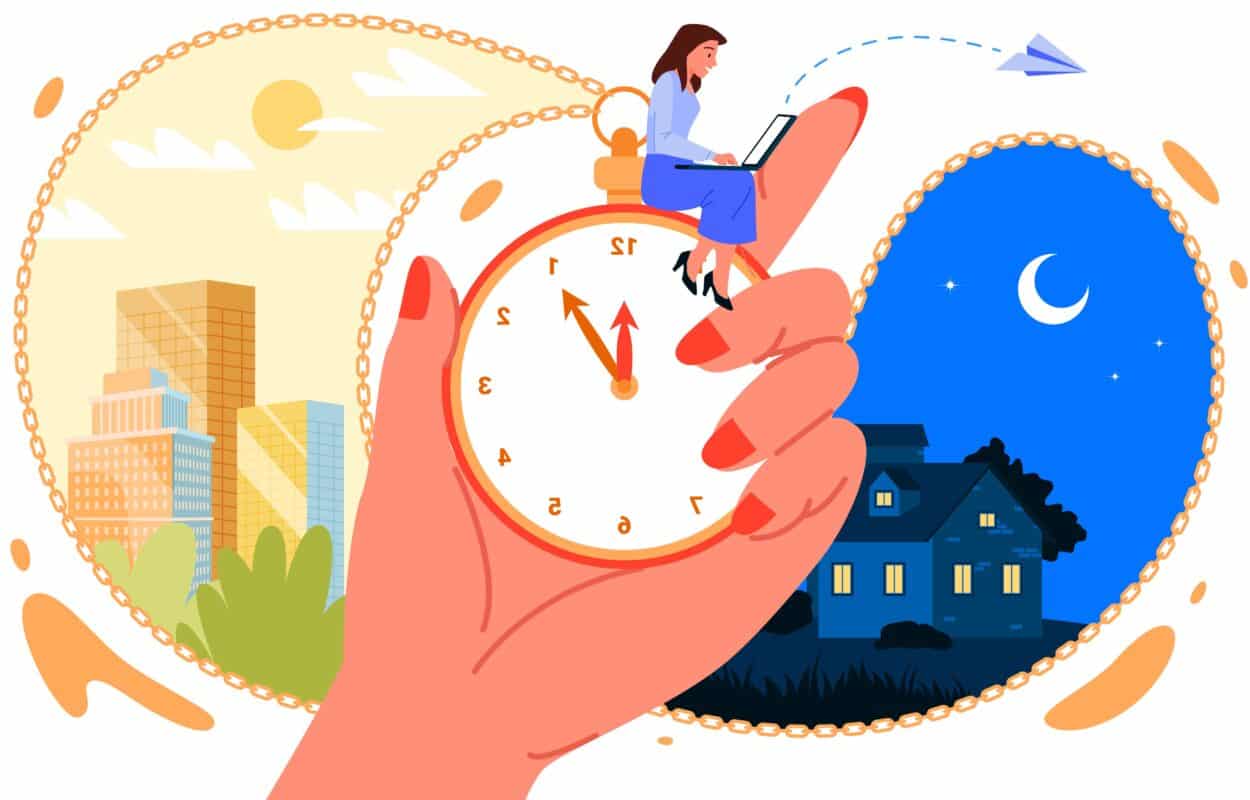
1. Establish a Regular Sleep Schedule
Consistency is key when it comes to sleep.
Try to keep your bedtime and wake-up time consistent, even on weekends. This regularity can help regulate your body’s internal clock and could help you fall asleep and stay asleep for the night.

2. Create a Restful Environment
Ensure your bedroom is quiet, dark, and at a comfortable temperature. You can use room-darkening shades, earplugs, a fan, or other devices to create an environment that suits your needs.
Consider using devices like white noise machines if you prefer having soothing and undisruptive sounds to fall asleep to instead of silence.
Your bed should be comfortable and supportive. Many mattresses tend to lose their supportive qualities after about ten years, so it might be worth investing in a new one if yours is reaching that age.

3. Avoid Exposure to Screens before Bed
The blue light emitted by phones, computers, and TVs can interfere with your sleep. Try to switch off these devices at least an hour before bedtime or remove them from your bedroom completely.
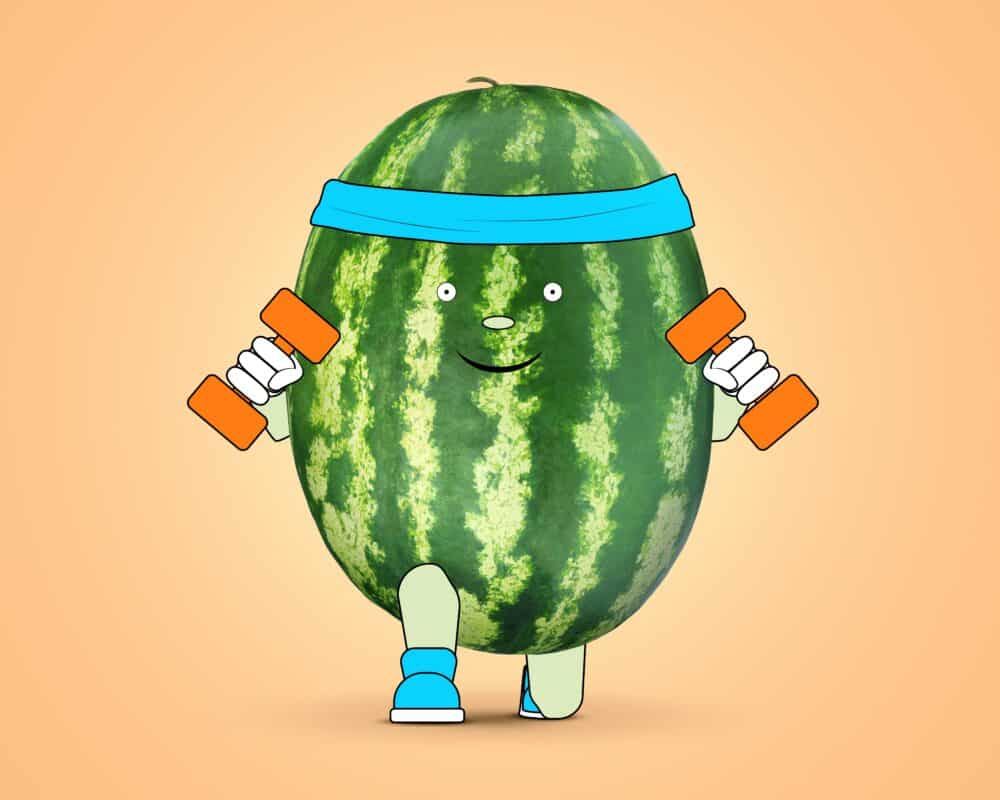
4. Exercise Regularly
Regular physical activity can help you fall asleep faster, get better sleep, and deepen your sleep. Just don’t exercise too close to bedtime, as it might interfere with your sleep.
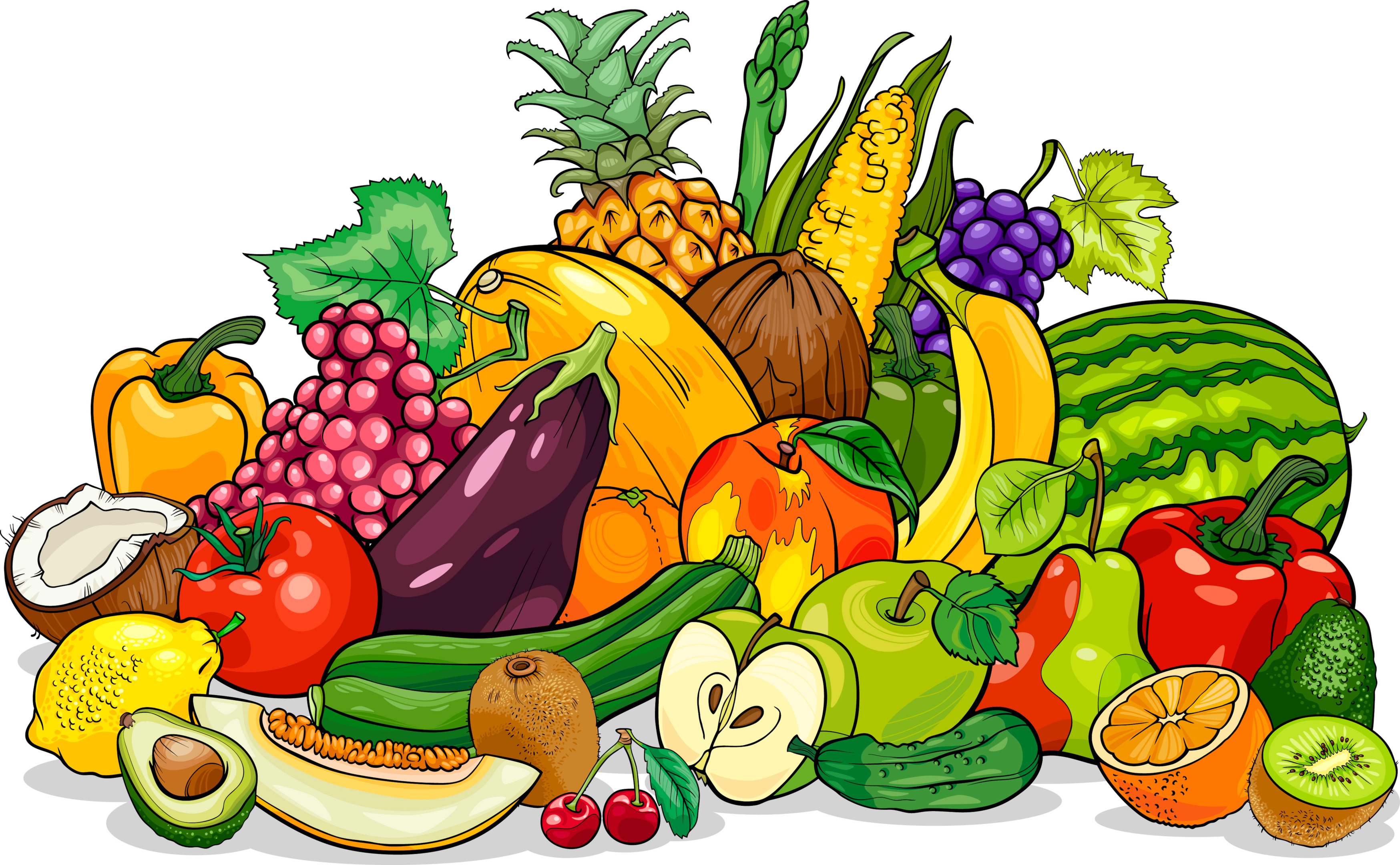
5. Mind Your Diet
Don’t go to bed either hungry or stuffed as discomfort might keep you up.
Stay away from caffeine, nicotine, and alcohol close to bedtime. These can disrupt your sleep cycle and affect sleep quality.
Certain dietary choices can enhance sleep quality:
- Tryptophan-Rich Foods
Tryptophan is an amino acid that increases serotonin levels, which can help regulate sleep. Foods high in tryptophan include nuts, seeds, tofu, cheese, red meat, chicken, turkey, fish, oats, beans, lentils, and eggs.

- Melatonin-Rich Foods
Melatonin is a hormone that regulates the sleep-wake cycle. Foods rich in melatonin include cherries, corn, asparagus, tomatoes, pomegranate, olives, grapes, broccoli, cucumber, and grains.
- Herbal Teas
Certain herbal teas like chamomile, valerian root, and lavender are known for their sleep-promoting properties.
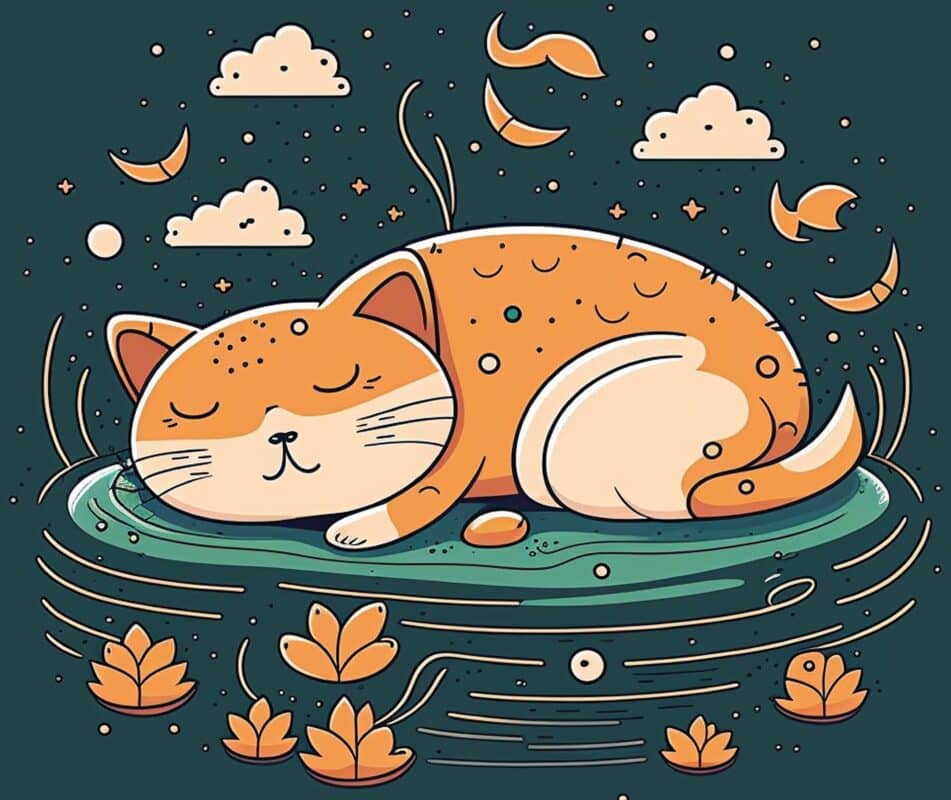
6. Limit Daytime Naps
Long daytime naps can interfere with nighttime sleep. If you must nap, limit yourself to naps under one hour and take it during the mid-afternoon.
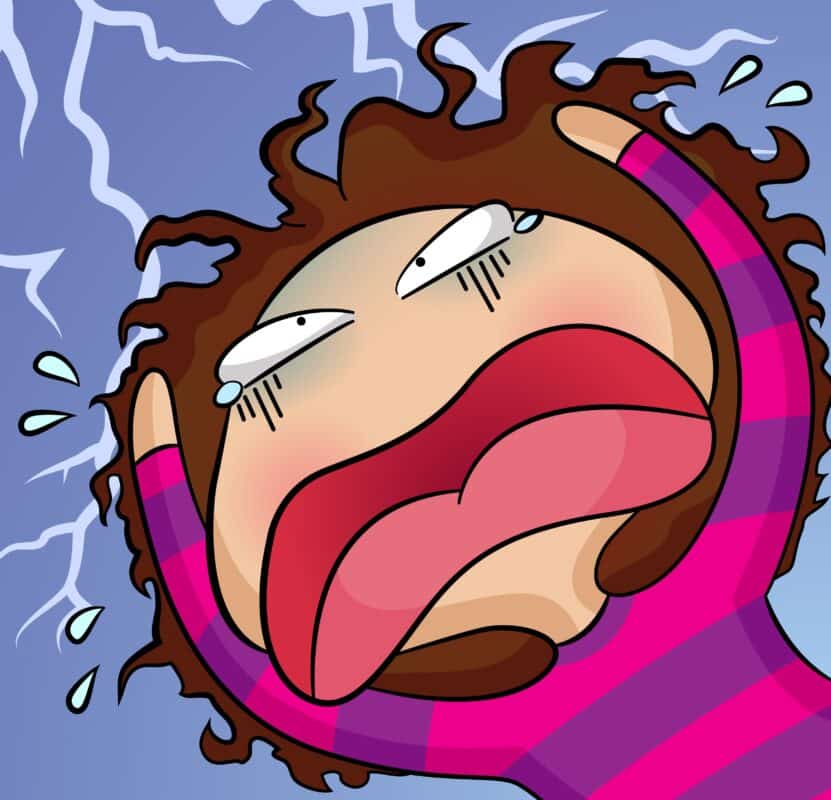
7. Manage Stress
Stress and worry can lead to sleep problems.
Several relaxation techniques can help improve sleep:
- Progressive Muscle Relaxation
This technique involves tightening and then releasing each muscle group in your body, starting with your toes and working your way up to your head.
- Meditation
Various forms of meditation, including mindfulness and transcendental meditation, can help relax the body and mind for better sleep.
- Breathing Exercises
Deep, slow, rhythmic breathing can be calming and conducive to sleep.
- Yoga
Gentle forms of yoga can help promote physical relaxation and mental calm.
Remember, it may take some trial and error to find what works best for you. It’s always a good idea to discuss any persistent sleep problems with your healthcare provider.

Understanding Cannabinoids and Hemp-Derived Cannabinoids
What is a Cannabinoid?
A cannabinoid is a type of chemical compound found in the cannabis plant. There are over a hundred known cannabinoids, each with unique properties and effects on the human body. The most well-known cannabinoids are delta-9-tetrahydrocannabinol (Delta 9 THC) and cannabidiol (CBD).
Cannabinoids exert their effects by interacting with the body’s endocannabinoid system, a complex network of receptors (CB1 and CB2 receptors), enzymes, and endogenous cannabinoids (cannabinoids produced by the body). This system helps regulate a variety of physiological and cognitive processes, including appetite, pain sensation, mood, and memory.
What are Hemp-Derived Cannabinoids?
Hemp-derived cannabinoids are simply cannabinoids that are extracted from the hemp plant, a variety of the Cannabis sativa plant species. The hemp plant is typically rich in CBD and contains low levels of Delta 9 THC. This differentiates it from marijuana, another variety of Cannabis sativa, which is known for its high THC content.
The 2018 Farm Bill in the United States federally legalized hemp and its derivatives, including hemp-derived cannabinoids, as long as they contain no more than 0.3% Delta 9 THC on a dry weight basis.
Hemp-derived cannabinoids are used to create a wide range of products, including oils, edibles, topicals, and more.

The Difference Between Marijuana and Hemp
It’s important to understand the difference between marijuana and hemp, two types of cannabis plants. While both plants contain cannabinoids like THC and CBD, the concentration differs.
Marijuana typically contains high THC levels, while the hemp plant is rich in CBD and has less than 0.3% THC.
This distinction is vital from a legal perspective. As mentioned above, hemp and hemp-derived cannabinoids, such as hemp-derived Delta 8 THC, are federally legal under the 2018 Farm Bill, provided they contain less than 0.3% Delta 9 THC.
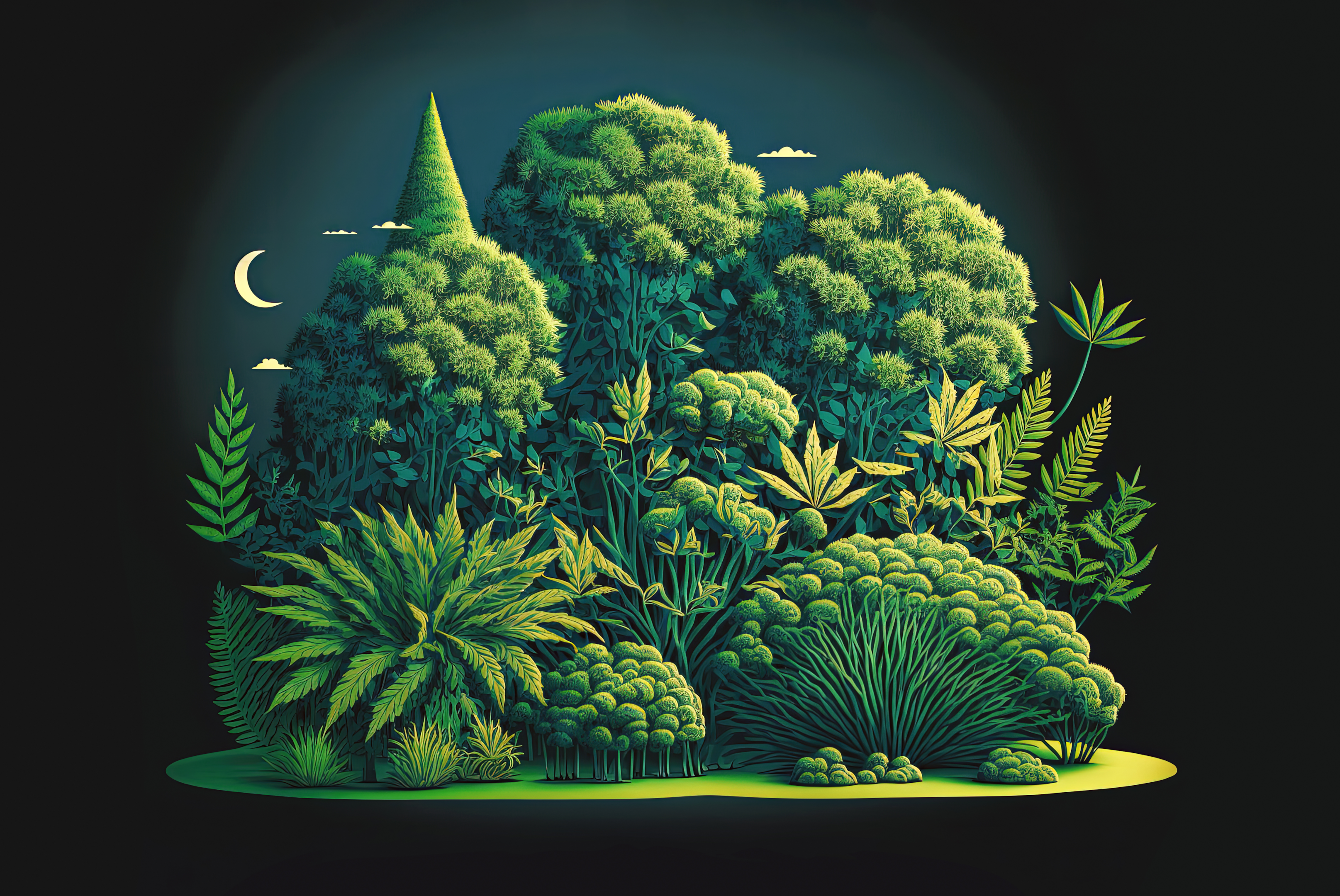
What is Delta 8 THC, Delta 9 THC, and CBD?
Delta 9 THC
Delta-9-tetrahydrocannabinol, often simply referred to as Delta 9 THC, is the most well-known and abundantly found cannabinoid in the cannabis plant. It’s responsible for the psychoactive effects, or the “high” that is typically associated with cannabis consumption.
Delta 8 THC
Delta 8 THC, found in trace amounts in the cannabis plant, is known for its more subtle effects compared to Delta 9 THC. It has a lower psychotropic potency, which can lead to mood-boosting effects without the intensity of traditional Delta 9 THC. While Delta 8 is less potent than Delta 9, it is still a psychoactive substance.
CBD
CBD, or cannabidiol, is a naturally occurring compound found in the cannabis plant, particularly in hemp. Unlike its cousins, Delta 8 and Delta 9 THC, CBD is non-psychoactive, meaning it does not produce the “high” typically associated with cannabis use. CBD has gained significant attention due to its potential health benefits, with preliminary research suggesting that it has an overall calming effect on the body.
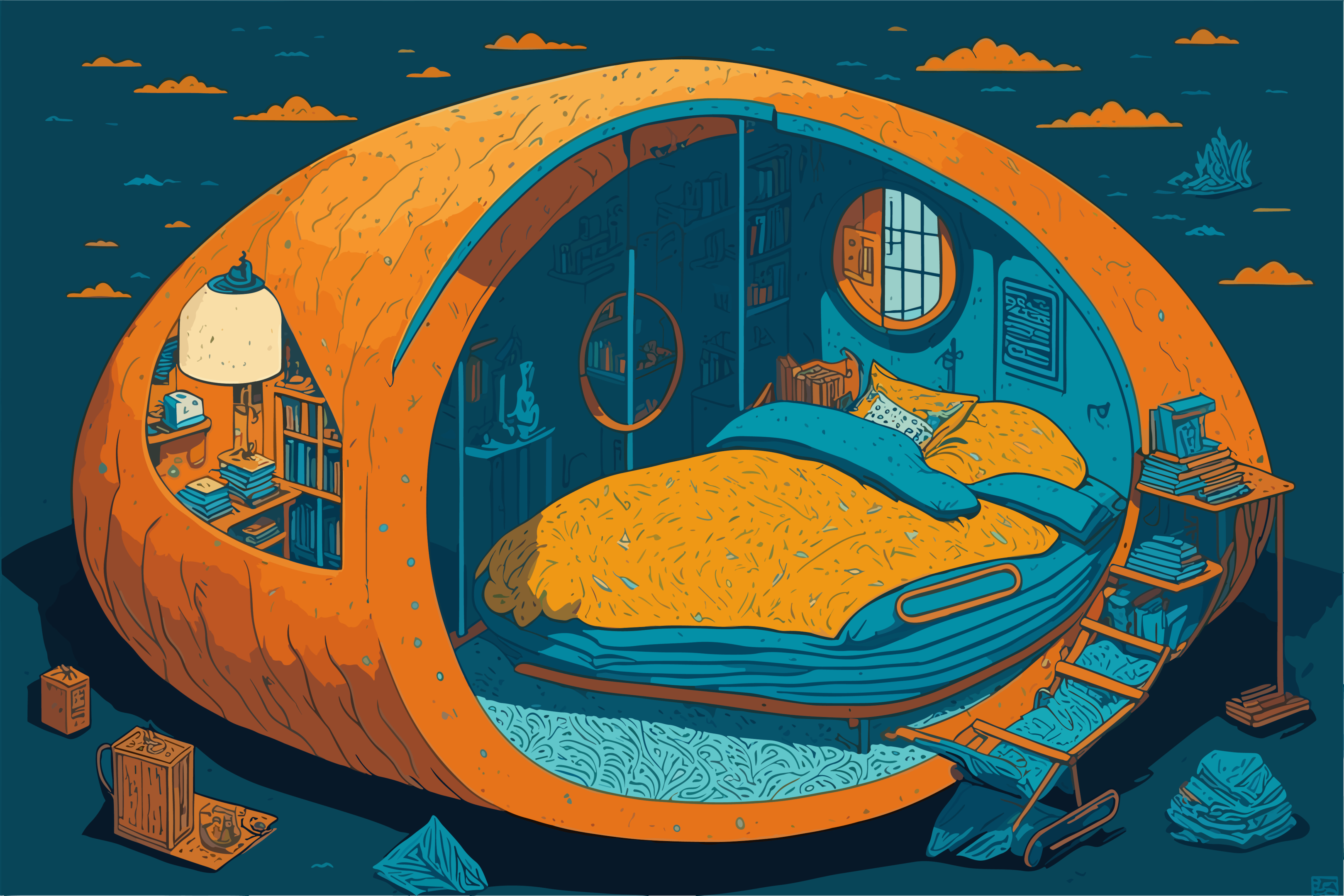
The Possible Benefits of THC and CBD for Sleep
It’s important to reiterate that the relationship between Delta 8 THC, Delta 9 THC, and CBD and sleep is still an area under active research. Many personal experiences and preliminary studies suggest a potential link between these cannabinoids and improved sleep quality, yet we require a more comprehensive understanding through further scientific studies.
With this clarification, let’s delve into how these compounds might influence sleep patterns.
The sedative properties of cannabinoids are often associated with their interactions with cannabinoid receptors in the brain. When cannabinoids bind to these receptors, they can potentially trigger feelings of sleepiness or relaxation in cannabis consumers.
Among the multiple active compounds housed in the cannabis plant, CBD and THC are the most studied.
THC typically functions as a relaxant, but in some individuals, especially those new to cannabis or consuming higher doses, it can have a stimulating effect.
In contrast, CBD can promote alertness in smaller doses and contribute to sleepiness when taken in larger quantities. The interplay between these two compounds can vary depending on factors such as dosage and the timing of consumption.
The type of cannabis plant you consume also significantly influences the effects. While cannabis is predominantly rich in THC, the primary psychoactive component, hemp plants are abundant in CBD. The differing concentrations of these cannabinoids in different plant strains contribute to the unique impacts experienced by consumers.

The Significance of Third-Party Lab Testing for Hemp-Derived Products
Third-party lab testing is an essential factor in ensuring the safety, purity, and quality of hemp-derived cannabis products. This process involves having products tested by an independent, unbiased lab not affiliated with the manufacturer or the retailer.
Here are some key points to consider when looking for a reputable brand:
Transparency
Reputable brands will be transparent about their manufacturing processes and lab testing. They should readily provide lab reports, also known as Certificates of Analysis (COAs), for each of their products. These reports confirm that the products have been tested and meet quality and safety standards.
Lab Reports
Lab reports should be easily accessible, typically found on the brand’s website. These reports should provide information about cannabinoid concentration, ensuring the product contains the advertised amount of CBD, Delta 8 THC, or Delta 9 THC. They should also confirm that the product complies with federal law, which mandates that hemp-derived products must contain less than 0.3% Delta 9 THC.
Test Results
The test results should show that the products have been screened for harmful substances. Reputable brands will test for potential contaminants such as heavy metals, residual solvents, and pesticides. These are crucial aspects to ensure you are consuming safe and high-quality products.
Product Reviews
Reviews from satisfied customers can provide valuable insight into product quality and the brand’s reputation. Reviews can help you gauge whether the brand delivers on its promises regarding product quality, effectiveness, and customer service.
Brand Reputation
Finally, consider the brand’s reputation in the industry. A company with a long history and positive reputation is more likely to provide high-quality, lab-tested products. Do your research and look for brands that are well-regarded by industry professionals and customers alike.
This will help ensure that you receive safe products that meet your needs.
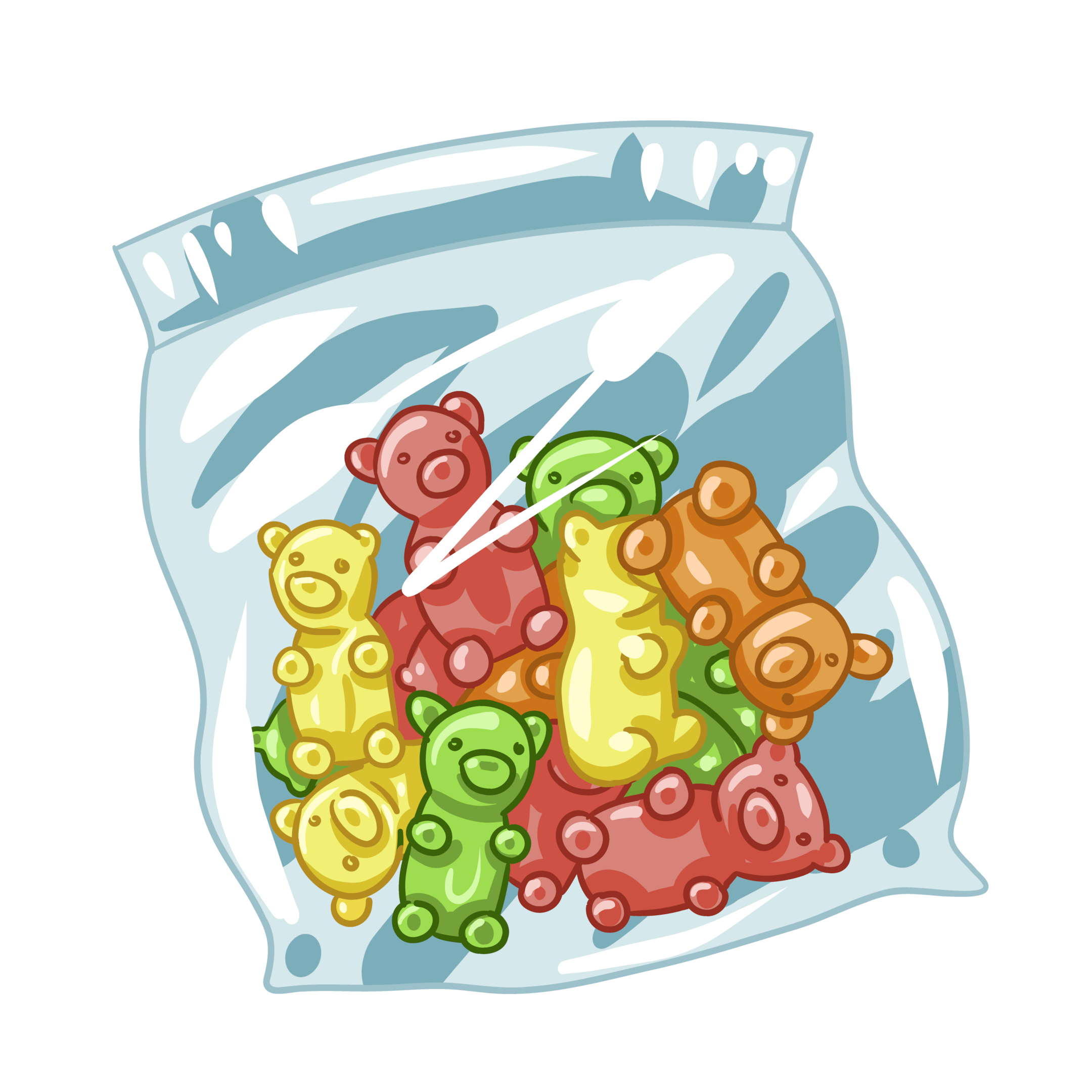
Consuming THC Gummies Safely
If you choose to consume THC products like THC gummies for sleep, ensure you do so responsibly. Remember that the effects of THC edibles can take longer to kick in compared to other forms of consumption, so be patient and give the gummy time to take effect.
Keep in mind that the effects of THC can vary based on body composition and the individual’s tolerance.
Guidelines for New Users
If you are new to cannabis or hemp-derived THC products, starting with a low dose is recommended. This ‘start low and go slow’ approach allows you to assess your body’s reaction to the active compound.
Gummies often come with a clearly defined amount of THC per piece, making it easier for you to control your dose. You might start with a half or even a quarter of a gummy, depending on its potency.
Pay attention to how you feel after the initial dose. The effects might not be immediate, as edibles need to be digested before the THC enters your bloodstream. It can take anywhere from 30-90 minutes to start feeling the effects, which can last upwards of six hours.
Advice for Experienced Users
If you’re an experienced user, you’re likely aware of your tolerance and how your body reacts to THC. However, keep in mind that the effect of edibles can differ from other forms of cannabis, and the onset of effects is typically slower.
Even for experienced users, it’s wise to consume a small amount if you’re trying a new brand or product. Potency can vary between brands and products, and a dose that was effective with one product might be too strong or too weak with another.
General Dosage Tips
Regardless of experience level, all users should avoid re-dosing before the effects of the initial dose are fully felt. Waiting for the full onset before taking an additional dose can prevent overconsumption.
Lastly, remember that consuming THC products on an empty stomach may result in stronger effects. Factors such as diet, metabolism, and overall health can also impact how you respond to THC.
Above all, it’s crucial to listen to your body and adjust your dosage accordingly. If you have any concerns about dosing THC gummies, it’s advisable to consult a healthcare provider experienced in cannabis use.
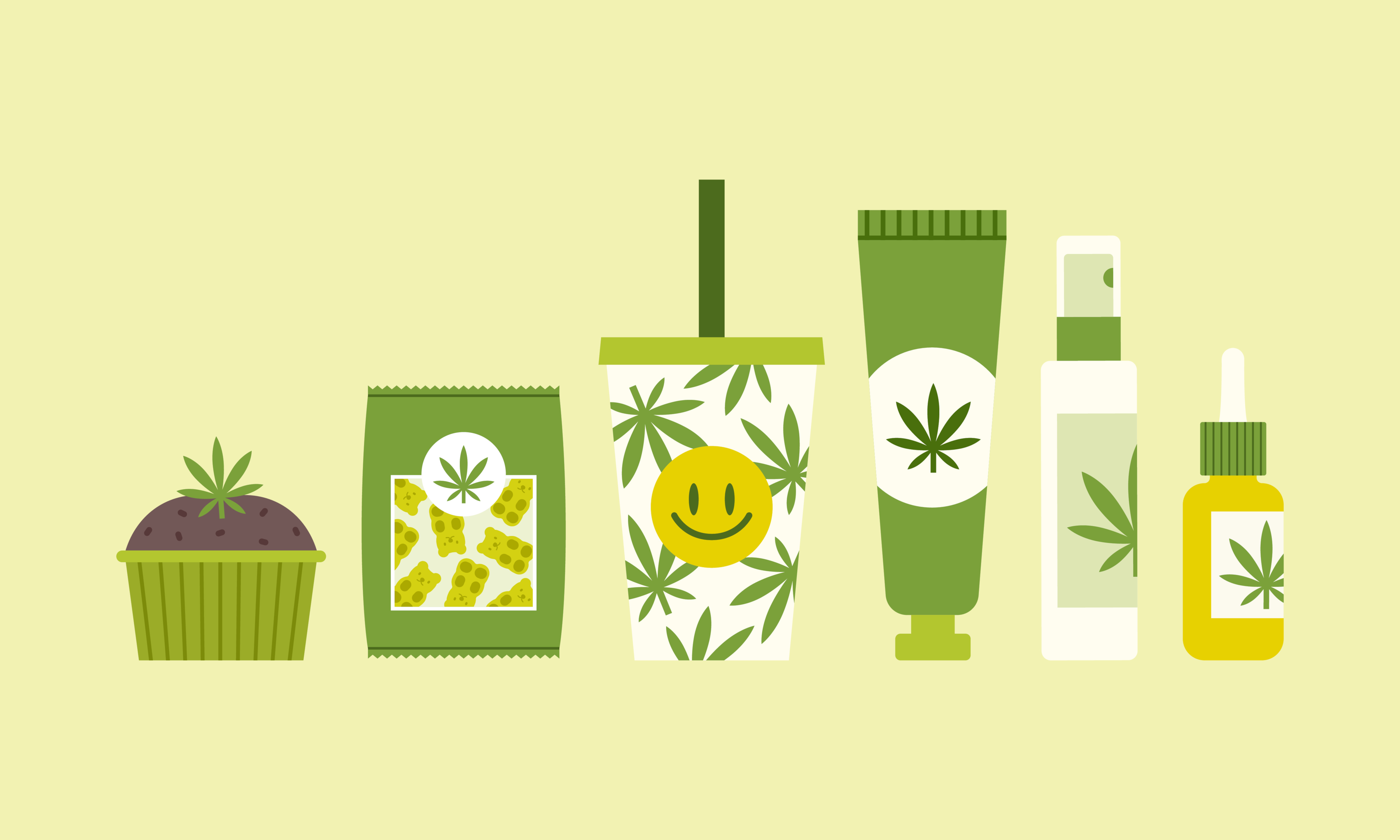
Methods of Consumption for Hemp-Derived THC Products
Hemp-derived THC products are available in several forms, each offering unique ways to consume and experience the effects of THC. These methods include vaping, concentrates, edibles, and THC-infused drinks. Let’s delve into each of these products.

THC Vapes
Vaping involves inhaling THC in the form of vapor through a vape pen. It’s one of the fastest methods for feeling the effects of THC, as the vapor enters your lungs and rapidly absorbs into your bloodstream.
New users should take a single small puff to start and wait a few minutes to assess its effects. Experienced users may already have an idea of their tolerance, but it’s always wise to start low and increase slowly when trying a new product.
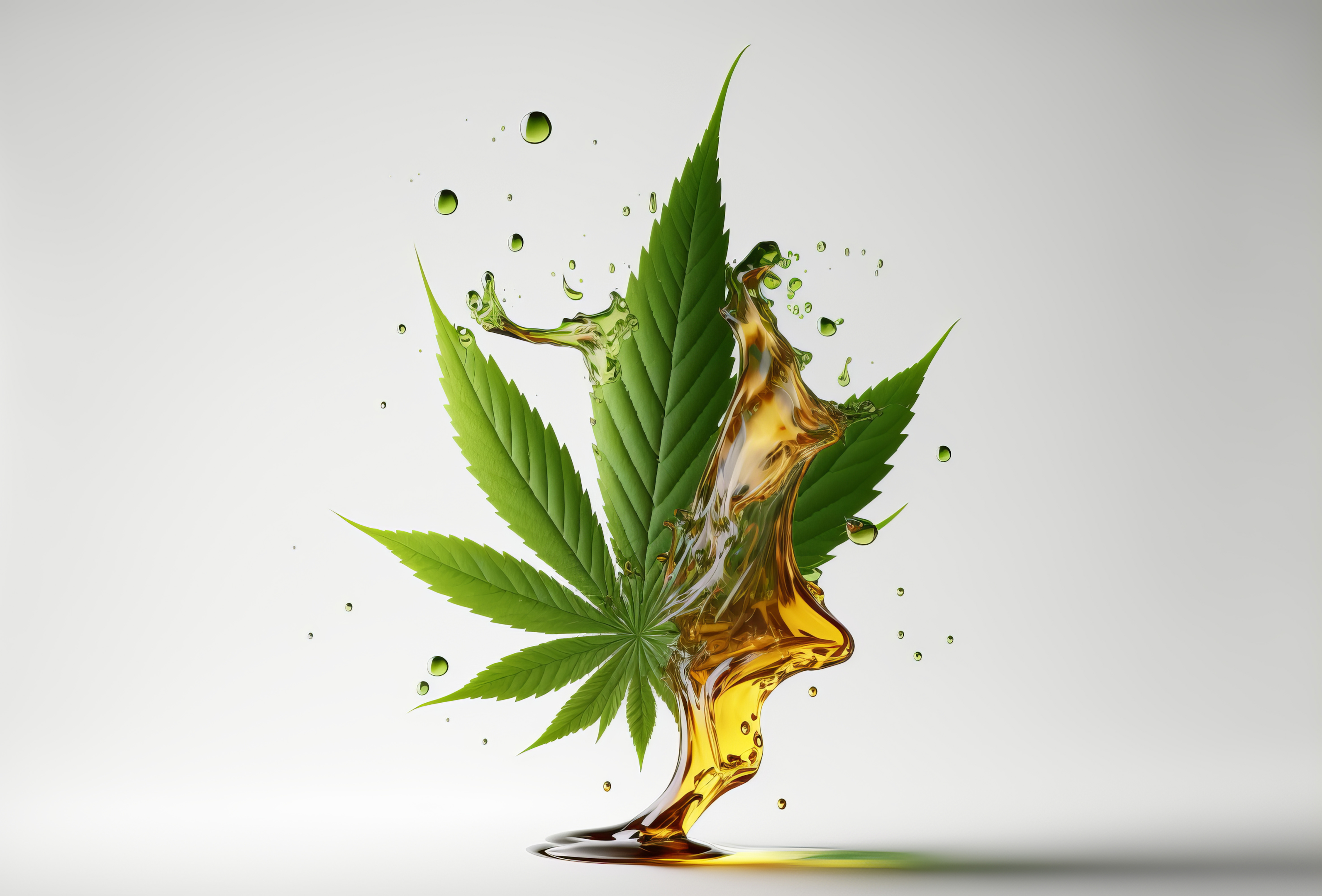
THC Concentrates
Concentrates are highly potent forms of THC, including waxes, shatters, and oils. They can be consumed through dabbing, which involves heating the concentrate on a hot surface and inhaling the vapor.
Given their high potency, concentrates are recommended for experienced users with a higher tolerance. Start with a very small amount, roughly the size of a crumb. You can increase your dose gradually once you’re familiar with the effects.
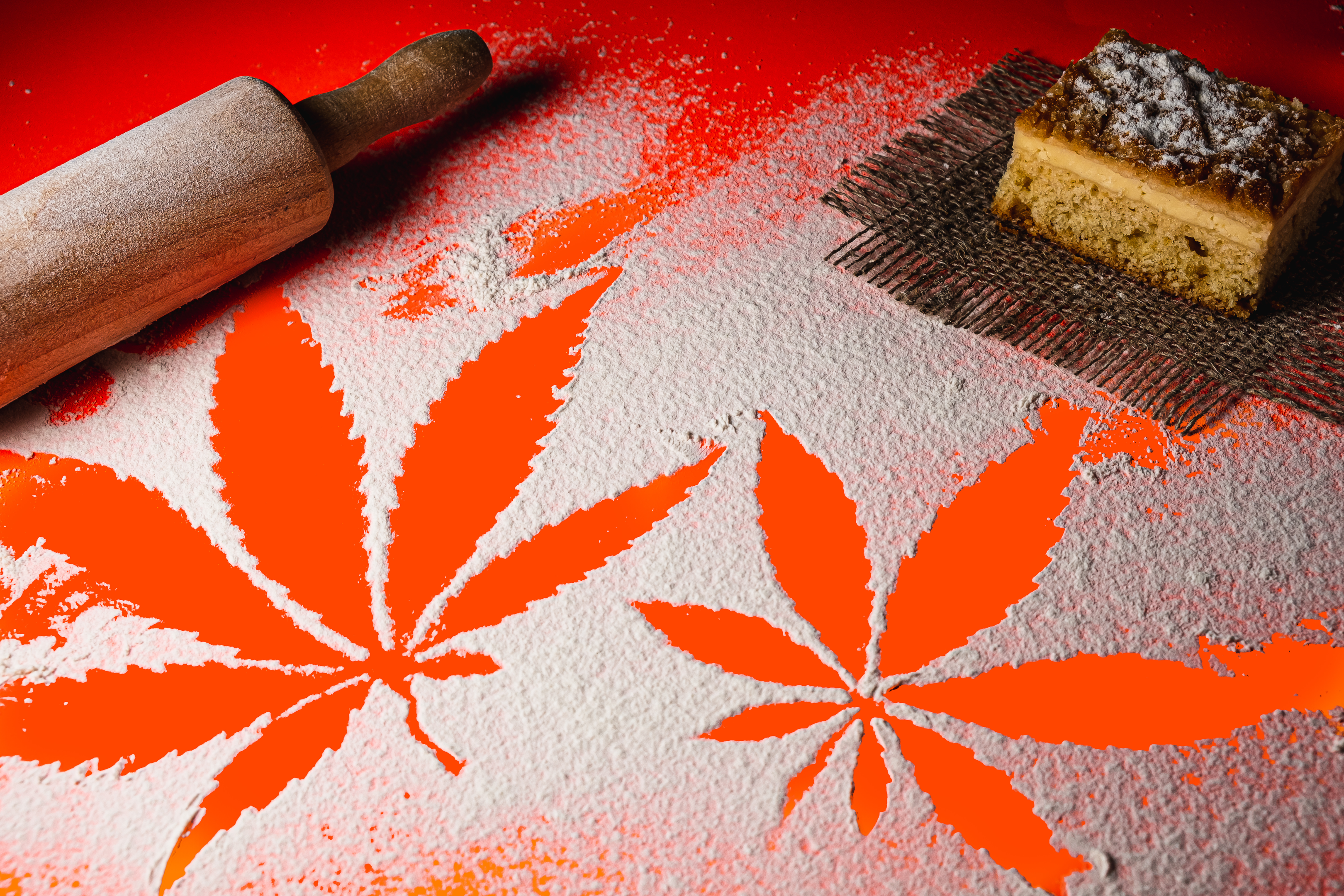
THC Edibles
Apart from gummies, THC can also be consumed in the form of chocolates, cookies, brownies, and other baked goods. The effects of edibles can take anywhere from 30-90 minutes to onset, and the duration can last several hours.
As with gummies, it’s best to start with a small portion of an edible, such as a half or a quarter if you’re new to them. Experienced users should also take caution when trying a new product, as the potency can vary.

THC-Infused Drinks
THC-infused drinks can take some time to onset, but the effects can be potent and long-lasting.
Start with a small serving, such as a few sips, and wait at least an hour to assess its effects. It’s also important to stay hydrated.
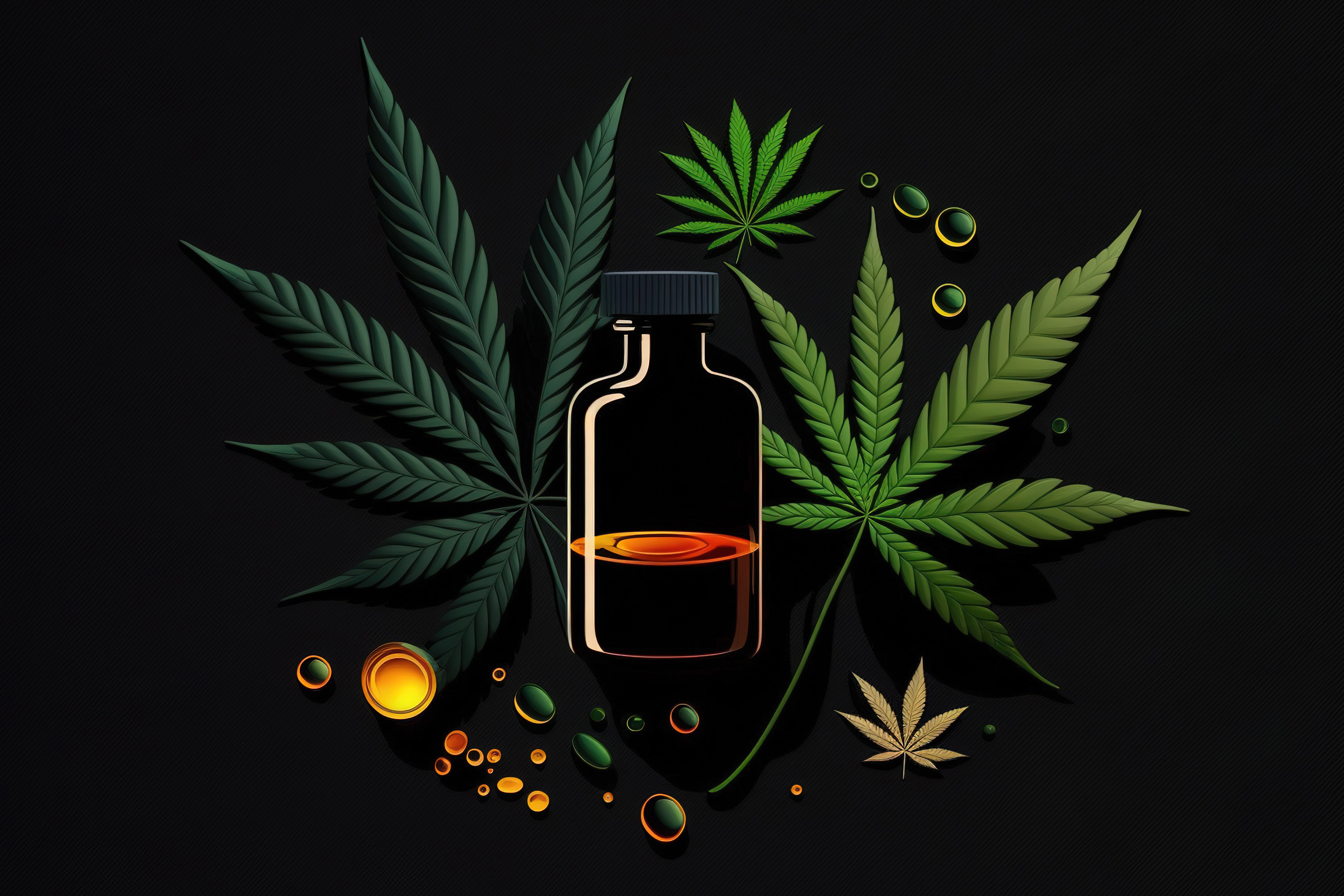
THC Tinctures
THC tinctures are a popular form of cannabis consumption, offering a convenient and flexible way to administer hemp-derived cannabinoids. These are liquid extracts that are typically applied sublingually, or under the tongue, for the most efficient absorption.
One of the key benefits of THC tinctures is their precise dosing. With each drop or dropper-full, users can easily control their THC intake. Effects typically onset within 15 to 45 minutes and can last several hours, making tinctures a suitable option for those seeking sustained relief.
Everyone’s body responds differently to THC, so take the time to understand how your body reacts. Also, keep in mind that THC’s effects can be influenced by several factors, including your body composition, metabolism, diet, and overall health. Always consult with a healthcare provider if you’re unsure about dosing guidelines or if you have health conditions that might affect your experience with THC.

Final Words
While THC gummies can offer potential benefits, they are not a one-size-fits-all solution for sleep problems. What works best for you might depend on several factors, including your lifestyle, overall health, and specific sleep issues.
Always remember to use THC products responsibly and consult a healthcare provider if you have any concerns or questions.
Hemp users should choose products that align with their health goals, considering factors like brand reputation, lab testing, hemp-derived cannabinoids, and desired effects.
The connection between THC and sleep continues to be intriguing. Whether it’s for subtle upliftment, mood-boosting effects, or potentially improved sleep, there’s a wide range of THC products available to cater to varying consumer needs.
As we continue to explore the possibilities of this amazing plant, the future of hemp and cannabis products seems promising. Here’s to hoping for a future where everyone can enjoy the full spectrum of benefits this plant offers!


